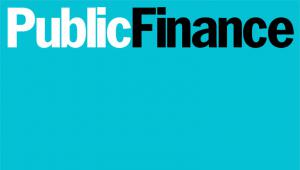
Acting in the public interest is something that all accountants have to do.
Yet it’s one of the least known yet highly regarded characteristics of the accountancy profession that an accountant does not just work for his or her client or employing organisation but also has to act in the public interest.
It’s a form of dual responsibility which has always been an appropriate professional fit for CIPFA accountants in our management of the public finances.
I’m talking of course about ethical responsibilities, an intangible set of values which we expect to be in place but usually only arise or are discussed when something has gone awry.
The fundamental principles of integrity, objectivity, professional competence and due care, confidentiality and professional behaviour form the governing framework for an accountant’s ethical responsibilities.
But the recent questions received by CIPFA’s Ethics “helpline” implies that there is some emerging evidence that acting in the public interest could be becoming increasingly difficult. It could even be possible that public finance accountants are facing ethical dilemmas more and more.
It is evident that the age of austerity has brought funding pressures which a previous generation of accountants did not have to experience.
While funding pressures alone should not result in ethical dilemmas, associated behaviours can mean pressure from colleagues or from board or council members to reflect a financial position that is more positive than actual results would otherwise indicate.
While funding pressures alone should not result in ethical dilemmas, associated behaviours can mean pressure from colleagues or from board or council members to reflect a financial position that is more positive than actual results would otherwise indicate.
Secondly, the modern incorporation of targets into public life has brought with it a narrower assessment of public service performance. This can mean that providing a positive message of progress or success to the public can become more attractive than reporting the adverse truth.
Set this in the context of the age of social media, where a mere headline from anyone can generate instant publicity, and the compound result can add up to a more difficult operating environment for today’s public finance accountant.
But that’s the reality. The question for all of us, however, is how do we equip ourselves to combat these modern pressures?
Every CPFA is schooled in ethics, and CIPFA has a formal statement of professional practice on ethical standards with accompanying guidance.
However, these tools in themselves may not provide appropriate assistance to accountants in today’s environment.
The issue of the new International Code of Ethics for Professional Accountants (released in the spring of 2018) is a timely intervention and provides a professional basis for enabling CIPFA to assess what support should be provided to the modern public finance accountant.
CIPFA proposes to lead that agenda for its members by working towards introducing a new statement of professional practice. Early adoption will see CIPFA leading the way as far as ethical standards are concerned.
But to do all of that we also need to understand better the scale and the background to the pressures that our members are facing.
That is why CIPFA’s Ethics Working Group is launching what we believe to be the largest ever ethical survey by an accountancy body.
All accountants (not just CPFAs) are welcome to complete the CIPFA survey, the results of which will inform the development of CIPFA’s response.
That response could range from critically assessing the content of the professional qualification to what the provision of more active support to members should look like.
The results will provide us with a more robust evidence base beyond the Ethics helpline questions.
They will be published in July at the CIPFA annual conference in Bournemouth at the Ethics Live! breakfast workshop.



















